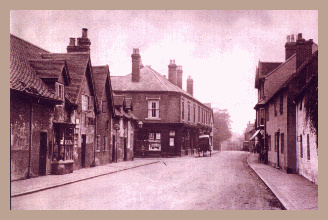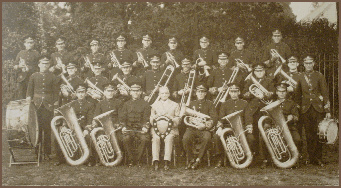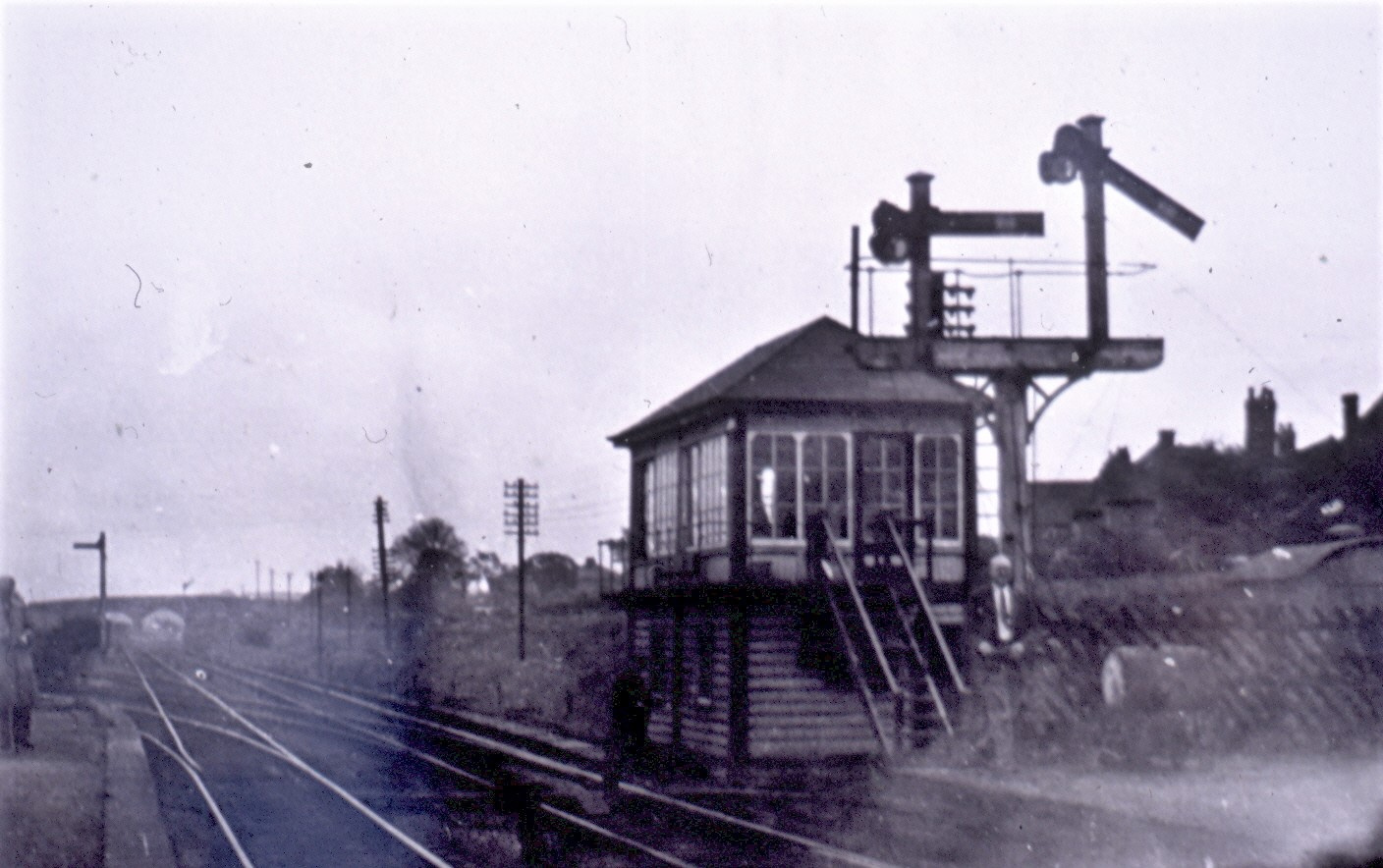Memories - Scroll down this page to see all information
A DAY IN THE LIFE OF A COAL MINERS FAMILY IN THE 1930'S -
by ETHEL LOTE
4am. Dad gets up to go to work, and he will meet all the other miners waiting to get the bus to either 'Dry Bread' or the 'Fair Lady'. All pits had strange names. All the miners would be carrying their 'snap' (food), which consisted of a bottle of water and sandwiches, carried in newspaper to guard against the mice. Sometimes Dad would take something for the pit ponies who lived underground in their stables, often ending their days blind through never seeing daylight.
At 5.am on a Monday morning, Mother would get up and fill the Copper, in the corner of the kitchen, with water ready for the days washing. Then she would light the fire under the Copper to heat the water. Next, out would come the 'Dolly Tub and the Posher'. It was hard work beating the clothes in the tub, no-one needed any more exercise. Afterwards, the clothes would be put through the big old mangle to squeeze out the water. If the weather was good, the washing would then be hung outside to dry. If not, then there would be lines of clothes hanging across the kitchen.
Children would have to get up early because it was a long walk to school. If the children were luck they might have 2d (two old pennies which is equal to less then 1p in today's money) with which to buy a bottle of milk at playtime.
Home from school at lunchtime where there would be just time for a piece of bread and dripping then back to school again. Anyone five minutes late would get the cane and there would be sore hands.
In the meantime , Mother would still be at her back breaking job of doing the washing which would often take all day. There were no washing machines, no central heating or hot water. All cooking and water heating had to be done on the coal fire with an oven at the side.
Coal miners received very poor wages but would receive a load of coal once a month. This was brought by lorry and tipped on the side of the road outside the house. It was then the work of Mother and the children to load the large lumps of coal into a barrow and wheel it up to the coal house, which was some distance from the road.
At 4.00pm the tin bath would be in front of the fire filled with numerous kettles of hot water. Dad would arrive home from the pit exhausted, covered with coal dust from head to toe, just the whites of his eyes showing. Mother would have his clean clothes waiting for after she had scrubbed his back. This was a daily procedure.
There were no pit baths, no machinery or trains down the coal mines in those days. The miners would walk miles under ground to get to the coal face and would use their pick axes in very dangerous conditions to extract the coal. There were also the dangers of gas, flooding and roof falls.
After tea, the children would be outside playing top and whip, skipping, ball games or 'kick the can'. Sometimes, there would be a night watchman who would sit on a stool on the pavement with a fire in a large bin. Children loved to sit around him and he would tell stories.
In almost every street there would be a cobbler and another treat for the children would be to visit his shop, which would be a front room of his house. The room would be almost knee deep in nails and bits of leather and there would always be a roaring fire with the ashes piled up in the grate. There was a wooden bench where the children would sit and watch the cobbler mend shoes. It was a real treat to sit there on a cold night with the smell of leather and his old pipe. He never minded how many children crowded in.
Bedtime was eight o'clock, then mother would begin the ironing. The flat-irons had to be heated on the fire and it was a very tedious job.
There was no television or radio but in the winter the evenings were spent playing darts, cards, sewing or singing as Mother played the piano.
Most people were poor but every one made the best of what they had, |Doors were always open. Neighbours helped each other and on the whole life was happy with just simple things.
STEAM POWERED LORRIES OF THE ALDRIDGE COLLIERY CO.LTD.
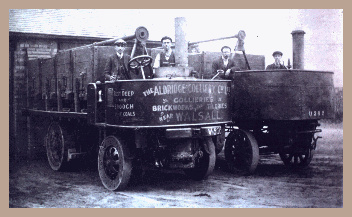
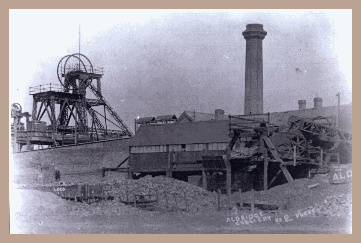
ALDRIDGE COLLIERY No. 2 PLANT
.
ORPHANAGE MEMORIES by Sid Larcombe
'
As a young boy of nine I was first admitted to the orphanage in 1944 and for a total of just over five years was to spend my time within the confines of Druids Heath School.
Aldridge then was just a quaint and picturesque village with a small population. My first two years spent in the annexe in Stonnall Road (now a private nursing home) bring back so many memories of how life was then, so different from today's hustle and bustle.
Walking across open fields, two of us boys would carry the milk churn to Rowe's farm, passing across Lazy Hill and past a small pond, and along the track down to the farmhouse. Whilst waiting for the milk, we were allowed to climb up in to the barn, and enjoyed a few minutes amusement jumping down into the hay below, before our return journey to the home.
There was a lovely view from most of the dormitory windows at the rear of the big house. Overlooking open fields, one could just view the branch railway line before it crossed over the Chester Road on route to Birmingham, also Swaine's farm and Gould Firm Lane in the distance. In the winter-time the scene was breath taking and would have graced any Christmas card.
I recall summer days down at the main school, playing football on the back yard, and the big slides that we made during the cold and frosty weather.
A glimpse of the green HARPERS Brothers buses as they journeyed past the school on their way to the village, or the other way to Brownhills and Cannock, were always a reminder to us boys that there was another world out there.
Inter house cross-country runs took us down the winding lane of Hobs Hole, past bluebell wood and back along Back Lane to the Plough and Harrow pub. The hedge rows were a mass of wild flowers and there was an abundance of foxgloves and poppies. Then the arduous route back up Frank James Hill past the  CHURCH into Noddy Park Road and finally Walsall Wood Road, as the old school came back into view. One of the rarer occasions that we would be pleased to have arrived back into our sheltered world.
CHURCH into Noddy Park Road and finally Walsall Wood Road, as the old school came back into view. One of the rarer occasions that we would be pleased to have arrived back into our sheltered world.
We enjoyed our visits to the AVION Cinema, which was a big treat, but had to be earned if one was not on detention. We were always made to feel welcome by the manager Mr Harry Russell. The march to matins at St Mary's church every Sunday morning and complete silence observed by us boys during the whole of the service.
There is so much one could write about during the early 50's but I cannot close without a mention of the numerous friends from the Aldridge village folk, who always made us welcome where ever we ventured. Such happy memories.
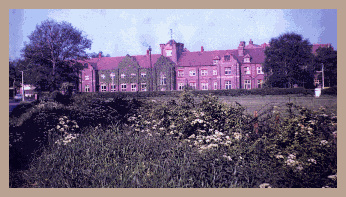
THE ORPHANAGE ' ( Druids Heath School) WALSALL WOOD ROAD - NOW DEMOLISHED
ORIGINALLY RUN BY RAOB, AND THEN DR. BARNARDO'S HOMES
